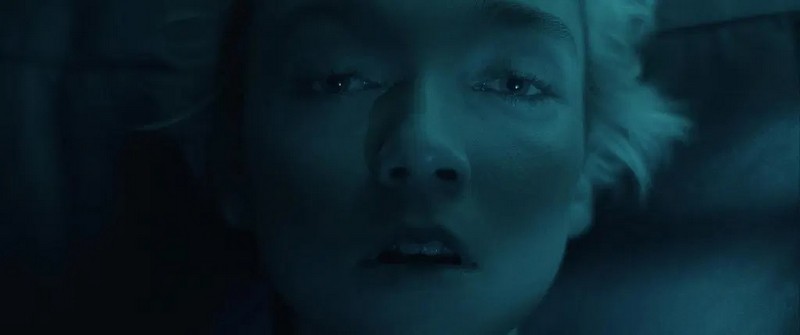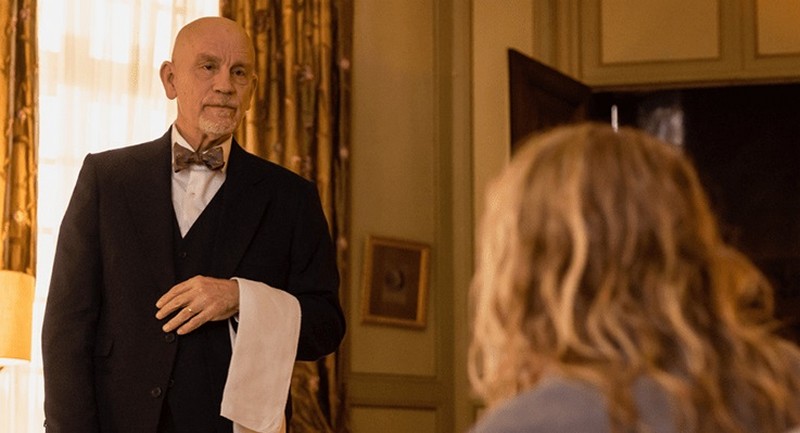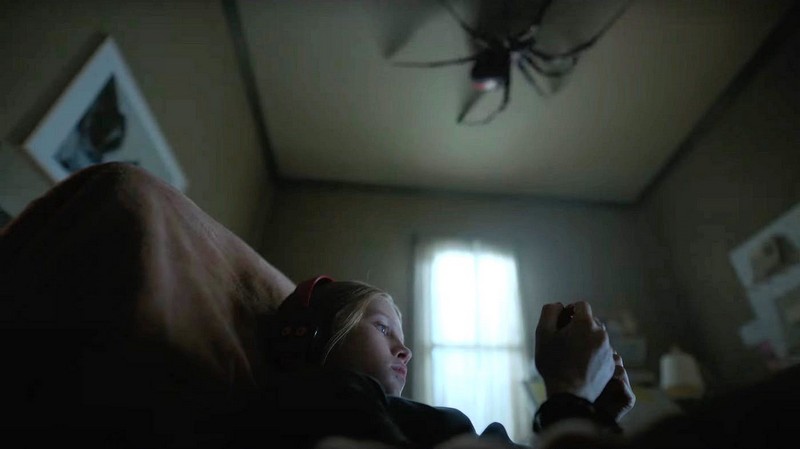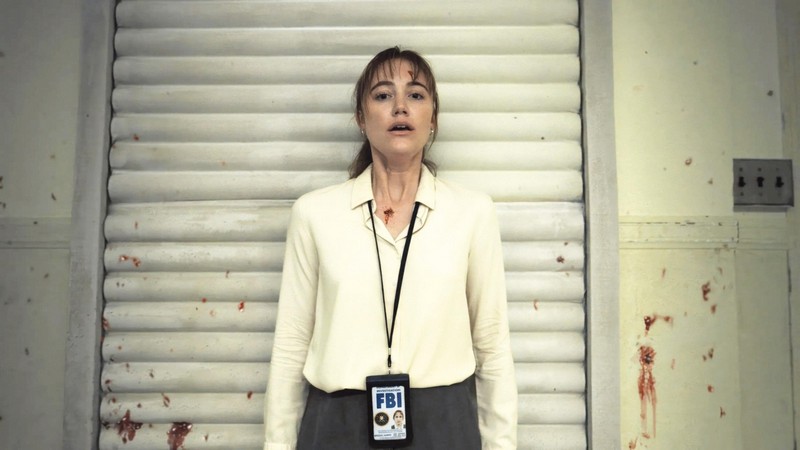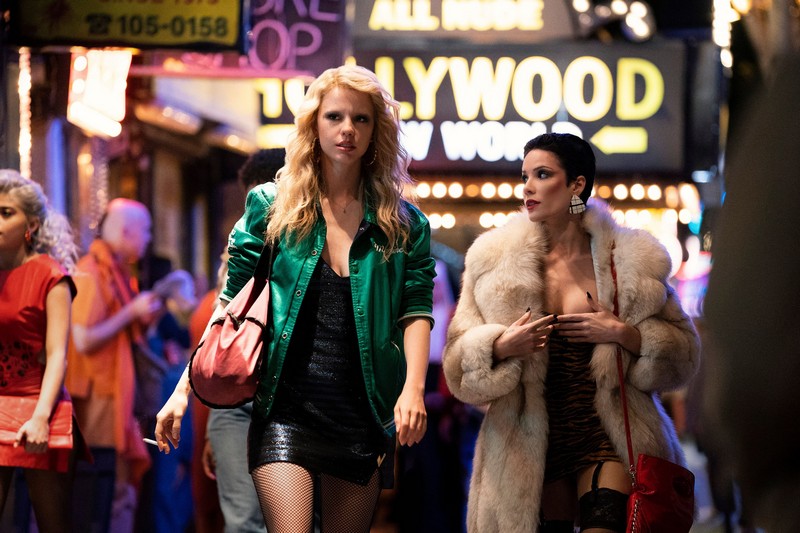Anthony Scott Burns’ Come True is a singular vision that pays strong homage to 1980s fantasy horror films. Gorgeous neon-tinted lighting is complimented by a haunting synthesized score that imbues a floating-like atmosphere for its characters, and seduces predominately with a chilling atmosphere.

The film follows teenage runaway Sarah (Julia Sarah Stone), who sleeps on a terribly uncomfortable playground slide. Her dreams are plagued by haunting visions as she stares back at the empty night sky. In her waking hours, Sarah is constantly tired and weary despite drinking “6 cups of coffee” a day. As a result, she participates in a university sleep study just for a bed to rest in. However, the study itself unveils morbid twists and turns as dreams begin to interfere with reality.
On the one hand, brilliant visual storytelling reveals a fleshed-out backstory without spoon-feeding information to the audience. For instance, in its opening act, Sarah closely observes her family’s house while hidden behind a tree. As her mother gets in her car and drives away, Sarah rushes in to hastily use the shower and scoffs food into her mouth, before bolting out again unnoticed. Without any dialogue, the director strongly hints at a troubled family life that has rendered the main character effectively homeless.
At times, though, this opaqueness deprives a character arc from developing. Sarah evokes great sympathy with a heaviness in her eyes, and metaphorical and literal weight on her shoulders from carrying all of her possessions in backpacks. The story transitions to the botched sleep study experiment she participates in, whereby dreams begin to interfere with reality.
Specifically, the sleep experiment can visualise what a person’s subconscious sees during their dreams, which is a conduit into Sarah’s mind, and the story. In principle, this is an extremely fascinating concept that builds up tension and fear palpably. Within Sarah’s dreams, the camera floats through a dark and misty abyss, littered with demonic, twisted figures. In a first point perspective, it arrives at an object whose frightening shape and silhouette emerge through the shadows. These gnarly dreamscapes often lead to potent jump scares, but more effectively invite the viewer to lean in and inspect the frame for themselves, piecing together the fragments of Sarah’s mind.
However, this narrative turn de-humanises Sarah and offers little substance in advancing the plot. The film becomes more concerned with the success of the sleep experiment and those running it, rather than delving into why they affect Sarah in particular. Not only this, these nightmarish figures seldom manifest into a tangible threat, therefore there feels little at stake for these characters.
Come True has a limited cinema release from 12 March. It will be released for streaming on 17 March via iTunes, Google Play and Sony Playstation
Patrick Scott
Other reviews you might enjoy:

Patrick Scott is a recent graduate from Monash University with a Bachelor’s Degree in Media Communications. He is a freelance film reviewer based in Melbourne, and contributor to The Blurb.

